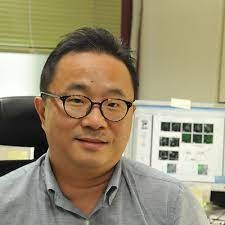Abstract:
We are interested understanding memory persistence and the ongoing modifications. As an example, we have carried out experiments to parse cellular mechanisms underlying sustained seeking behaviors that would arise after repeated usage of psychostimulants such as cocaine. We first assessed and quantified the seeking behavior of mice under progressive ratio schedule of cocaine self-administration, which enabled us to divide animals into two groups: susceptible mice that exhibited craving behaviors to cocaine infusion and resilient ones that did not. Striatal cholinergic interneurons (ChINs) are known to play critical roles in processing of reward-related information, mainly by controlling the medium spiny neurons (MSNs) of the nucleus accumbens (NAc). We found that in vivo activities of accumbal ChINs was differentially regulated by cocaine injection in drug-naïve and resilient mice vs susceptible mice. Our transcriptome and physiological analyses indicated that ChINs in the NAc displayed higher abundance of dopamine D2 receptor (DrD2) in the susceptible mice, which is necessary and sufficient for occurrence of susceptibility traits to cocaine infusion. Collectively, our data provide novel mechanistic insights into the susceptibility to cocaine addiction and ultimately contribute to the development and refinement of therapeutic interventions to these types of brain disorders.
| Host: | Asst Prof Alfred Sun
Principal Investigator
Neuroscience & Behavioural Disorders Programme, Duke-NUS |
| | |
| Venue: | Room 7C, Level 7, Duke-NUS |
| Contact Person: | Joyceline Ng (joyceline.ng@duke-nus.edu.sg)
Neuroscience & Behavioural Disorders Programme, Duke-NUS |
Date and Time
24 Nov 2022 @ 12:30 - 24 Nov 2022 @ 13:30
Speaker

Dr Joung-Hun Kim, Ph.D.
Professor, Department of Life Sciences
Director, Memory Control Leader Research Center
POSTECH (Pohang University of Science & Technology)
Biography:
Joung Hun Kim started his career studying microbiology & medicine in South Korea and received a Bachelor and a Master’s Degree from Seoul National University. He obtained a Ph.D. in Neurobiology group from Imperial College in London, UK and then moved to Columbia University to do postdoctoral work with Dr. Eric Kandel in the Center for Neurobiology & Behavior and HHMI. He started his own laboratory at Pohang University of Science & Technology (POSTECH), South Korea, where he is a Professor of Life Sciences and holds a Sukchun Chair Professorship.